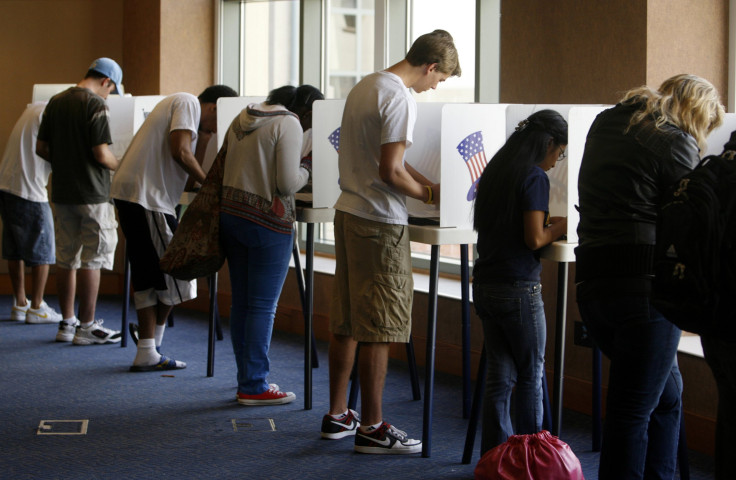San Francisco Lower Voting Age: Letting 16-Year-Olds Vote Could Set National Precedent, Increase Turnout

The key to jump-starting voter turnout could be as simple as inviting 16-year-olds to the ballot box. Or at least that's the theory in San Francisco, as the Northern California city is considering lowering the voting age to 16 for municipal elections.
City supervisor John Avalos introduced a charter amendment Tuesday that, if agreed upon by least six people on the board of supervisors, could appear before the general public on the Nov. 3 ballot. If the motion passes, San Francisco would be the first major U.S. city to lower its voting age, and experts say that could encourage a national trend that's slowly gaining strength.
"There's a problem with youth voting that's pretty consistent," said Peter Levine, director of the Center for Information and Research on Civic Learning and Engagement at Tufts University. "If we really encouraged a significant number of high school students to vote, they would be in a habit in a way that would last."
The concept is nothing new. In 2013, Takoma Park, Maryland, became the first U.S. city to reduce its voting age requirement, and Hyattsville, Maryland, did the same in January. Abroad, the practice is slightly more widespread, with countries such as Austria, Brazil and Cuba affording 16-year-olds the right to vote. Last September, Scotland allowed it temporarily, allowing 16-year-olds to cast ballots in the failed independence referendum.
But across most of the U.S., political participants have to be at least 18. In most cases, the first election in which teenagers can vote takes place once they've graduated high school. This doesn't make sense, Levine said, because that's where students are first taught their civic duties and branches of government. "Kids who are learning about elections actually can't vote for a quite a while," he said. "So you're teaching, somewhat, about politics ... in an abstract way instead of saying, 'Next Tuesday is the election. The voting place is in the basement or cafeteria. This is how you vote.' "
Instead of being guided to the ballot box and informed about the process, teens are expected to go to the polls during a transition period. Many have moved out of their homes and don't know how to register in a new city or county. About 23 percent of college students 18 to 24 said the reason they don't vote is because they're away from home, according to an analysis from Levine's center.
That means they're missing out on forming the voting habit. If teens could vote at an earlier age, it would increase their chances of continuing to vote in the future, too. A person who votes in the previous presidential election is more than 30 percentage points more likely to vote in the next one, according to data from the American National Election Panel Surveys. "When youth don't vote, some of the youth that don't vote come into the electorate when they get older," said Mindy Romero, director of the California Civic Engagement Project at the University of California, Davis. "We're not getting to our youth, and creating an electorate later that is not representative."
Still, not everyone is a fan. Opponents of reducing the age requirement argue teens' brains aren't yet fully formed and that reducing the age is just a ploy to get votes. "It’s a terrible idea," Claremont McKenna College professor John J. Pitney Jr. told the San Francisco Chronicle. "Sixteen-year-olds have a lot going for them, but civic judgment isn’t one of those things."
The political consequences of lowering the voting age are unclear. Although some people have the impression youth always vote liberal, half of millennials consider themselves independent. Data on increased turnout after admitting younger voters is scarce, but in Takoma Park, Maryland, overall turnout in 2013 was 11 percent. Among youth, it was 44 percent.
Romero said that if San Francisco were to let 16-year-olds vote, it could set a precedent. Other city councils could start discussing the possibility of letting younger people participate in the electoral process and eventually lead to a nationwide change. Keith Mandell, a director of the National Youth Rights Association, told the San Francisco Examiner "it would be huge."
For their part, San Francisco 16-year-olds seem to be largely in favor of the movement. Four teens told the Chronicle they wanted to get involved in government sooner rather than later, saying they were not only mature but also passionate. "I think the future is in our generation, and us having a say is an important part," high school junior Nina Avroneva said.
© Copyright IBTimes 2025. All rights reserved.






















